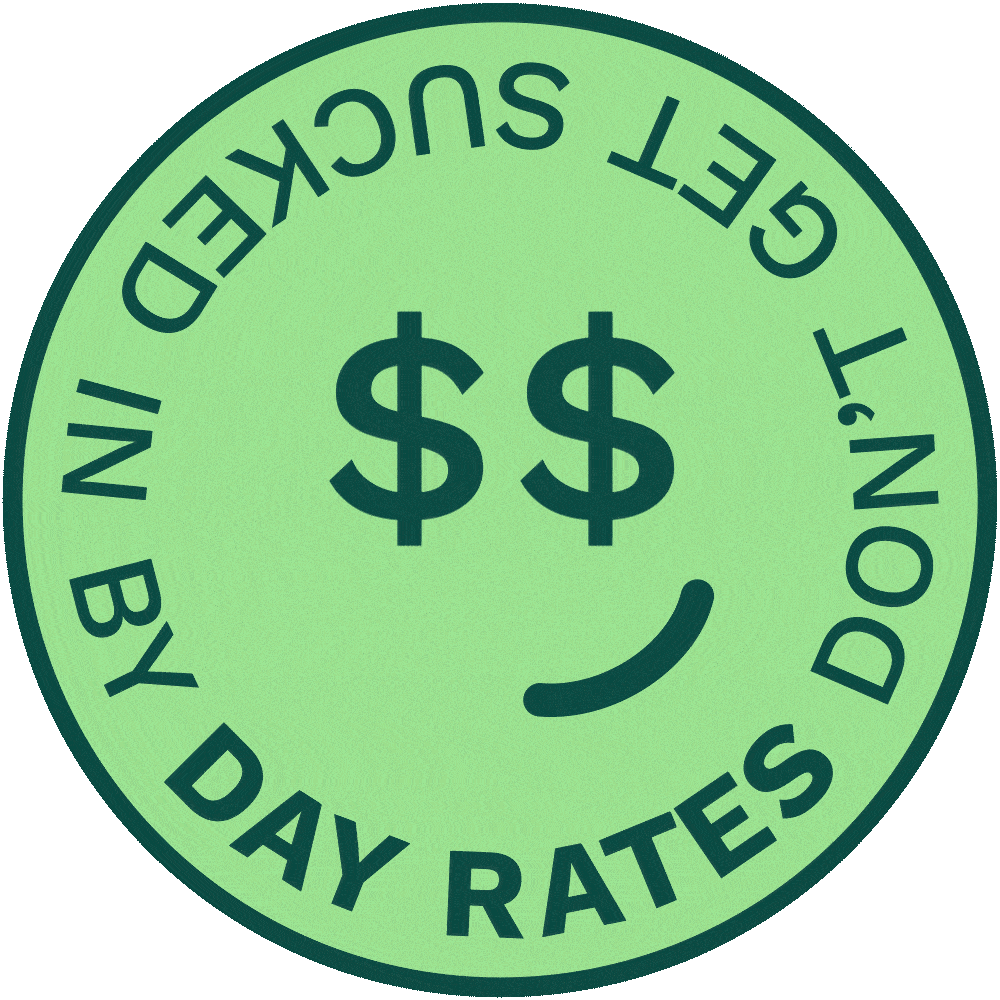From freelance freedom to full-time life. Lantern senior designer, Baz Forrister shares his journey
Baz started his career with full-time roles at a number of renowned UK design studios. After dabbling with freelance work in 2016 he made the switch to freelance in late 2019, allowing him to plug into a wide variety of design teams and projects both in-person and remotely.
Now, Baz has traded in the flexibility and freedom of freelance life for a full-time role at Lantern. A few months in he shares his thoughts and highlights of the journey so far and, crucially, if he misses freelance.
Hey Baz, let’s hear a little bit about your journey so far.
It started with big-brand-energy at Someone, then moved sports-sector focussed at Designwerk. Following this, I in some ways, had an accidental taste of freelance before my next full-time role at Interbrand. I then intentionally made the move to freelance, ready for all that it offered… just before the pandemic hit, which naturally threw some curveballs, but all added to the journey. Pandemic freelance was wild, post-pandemic freelance was amazing, full of great experiences and a lot of character development, and here we are.
What made you want to give up freelance and move back into a full-time role?
For me, freelance offered many great opportunities both personally and professionally, a lot of which I think get overlooked. As designers, we’re all aware of how many great studios there are in London, yet typically we may only see behind the curtain of a select few in our career. Whilst it seems obvious, being able to expand on that firsthand knowledge is invaluable and does wonders in terms of discovering what does and doesn’t get the best out of you creatively and what inspires you the most.
I think there’s a turning point during a designer's career that I’ve seen clearly within myself and my friends. You start out in very much a ‘please let me work for you’ kind of way, which makes sense, it’s highly competitive and there aren’t many seats in the studios you dream of being in and you’ve no real-world experience. You grind, you have fun, and you grind a little more but eventually, once you feel confident in your experience and you’ve built a strong portfolio of work, the mindset can turn to ‘where do I actually want to work, what aligns with my goals/character/values?’ For me, this is the best turning point in a designer's career, and I believe a stint of freelance can be a great way of finding those answers.
So in conclusion, there was no ‘thing’ that made me want to ‘give up' freelance, it was more a case of I found exactly what I was looking for when I decided to make the jump. I wanted to be a part of a team/family dynamic that truly resonated with me, as people we’re so much better within a pack, it’s just finding the right one.
Baz Forrister, Naming and visual identity for a ‘fit-first’ collaborative bike brand, Avec bikes and visual identity for a community-first track club Track East
How did you become aware of Lantern?
So my very first internship, from a long list of them, was within a London studio that Ryan (Lantern founder) worked at. I can’t remember exactly how long I was there, a few weeks I think. But I clearly remember it being the first as I couldn’t believe how tired I was after just a few days of being in a studio Mon-Fri. To say it was a shift from university life was an understatement (the fact I was staying on a sofa at the time probably also factored into that).
Anyway, I worked mainly with Ryan and found him a great character to be around. At an intern stage when you don’t have any real-world experience, finding someone that gives you their time, support and guidance on top of their busy schedule goes a long way.
I remember looking him up a few years later to see where he was at and realised he’d started Lantern, so the studio stayed on my books from then.
Whilst freelancing, what made you want to stay on at Lantern?
Honestly, I just didn’t want to leave.
Throughout freelancing there become a few recurring ‘types’ of gigs you experience; There’s the one you do for three months, yet they felt like a year and you’ve no idea how people do it full time. There are others that are ‘so so’, perfectly fine, you did some good work, made some nice contacts but it didn’t build any fire in your belly. And then there are the ones such as the one at Lantern.
From day one I almost forgot that I was freelance. I felt a part of the team, I was working on projects that truly inspired me and I found the energy of the room and people to be so different to anywhere else I’d been. I felt like it was one of the first places I’d been where not only did everyone in the room truly care about design but there was no flapping or steam bursting from people's ears if anything didn’t go as planned or ideas weren’t coming on demand. Instead, just calm offers of solutions and support. And finally that the balance of work/personal life was even; people left on time and valued family/social/exercise/BBC dramas time. I realise all of this reads like every design studio's culture LinkedIn posts we see week in and week out, only this one's true! Anyway, I’d say that's enough flattery. Ultimately I was really enjoying myself and initiated one of those “Will you go out with me/any chance we can make this official?” types of chats and fortunately it was a match.
Having experienced a broad variety of creative agencies, is there a particular way of working that has stuck with you?
The breadth of experience certainly offers you so many insights into how differently people/studios work from one another and it’s something I’d recommend everyone experience at some point in their career. You go and work in three different studios over a 9 month period and you’ll come away with the knowledge of three different approaches to everything. From the big things like management style, how involved creative directors are and what teamwork means to different people, to the small things like chaotic file naming and whether people eat lunch at their desks or are pro-break-taking.
Like with everything we do, you keep hold of the bits that work and make sense for you, and you leave the other bits behind. The best bit is we’re all different, so the things that I add to my toolkit and take into the next job someone else might leave behind and vice versa. So to answer the question, I’ve consciously taken all of the bits that best resonated with me from each job and I use them all regularly within my own approach to everything I do, and I think that’s really helped in creating my own ways to get the best from myself.
Do you have any advice for designers looking to switch from freelance back to full-time?
Tough one. It all depends on the goal of the individual. I think if anyone's considering it, they’re probably also looking for that team that feels right for them. If that is the case I’d say just keep at the search, be wise with the gigs you take and don’t waste time with jobs that you know from the get-go don’t tick your boxes.
And what about designers wanting to go freelance?
My main thing here would be to do it with intention and purpose. For me, it was to truly find somewhere that I knew felt right for me, whilst also working on a longstanding goal of putting permanent roots down in London after renting for 10 years. So right away I had two objectives that came with different requirements. This gave me focus and positively influenced each decision and move I made, and I think having that structure in something that’s so ‘free’ can be helpful.
Don’t get sucked in by day rates. Of course, when you first transition and you start hearing of the day rate opportunities your eyes can fill with pound signs, and you can start walking around with some extra Connor McGregor arm swaying swag. The rates can be great, but you can also drift from what’s important to you if you’re not careful. Do you really want to work on a cigarette brand, even if the day rate has an extra 100 on top? (I’ve never done this, but it’s an example of an offer I’ve seen). Do you really want to do a big stint in advertising if you fundamentally don’t like the idea of guilting people into buying ‘stuff’? It’s these sorts of conscious decisions that will not only help solidify the type of work you want to do but will also affect your level of passion and motivation.
I’d also say to be aware of your project involvement. I was always fortunate to arrange long bookings and extensions, so whilst I’d go in initially to help wrap up a project, I’d then be there for the beginning of new ones and be involved in the day one creative allowing for my portfolio to grow. If you’re not careful you could end up doing odds and ends for a year and suddenly panic that there's nothing new in your portfolio and that things are beginning to feel dated.
Lastly, it requires you to be on the ball. Accountancy, recruiters, emails, and managing finances (especially late payments) are additional jobs in themselves. Master it, and without realising you’ve upped your business knowledge and understanding of how things really work, but be prepared for it. Ignore it or take it for granted and you’ll get some tasty end-of-year emails either asking for a bunch of receipts you never kept or a large amount of owed money you hadn’t accounted for that you’ve since spent on trainers.
Finally, what are you most looking forward to over the next 12 months at Lantern (work-wise and culture-wise)?
Initially to see out more end-to-end projects with the team. We’re in the middle of one right now that I think is my favourite work yet and I can’t wait to see how that progresses and for it to be out there in the wild. I’m also excited about being a part of a smaller team that’s set to grow over time and become integral in how things work. I’d like to think that my addition offers another perspective in terms of process and approach and that I can pass on the positive mentorship I experienced all those years ago with existing and future members of the team.
And lastly, from a cultural perspective, I’m looking forward to finally getting Ryan into a karaoke booth after hearing about the many unsuccessful attempts. I've heard he does a great Bon Jovi.
















